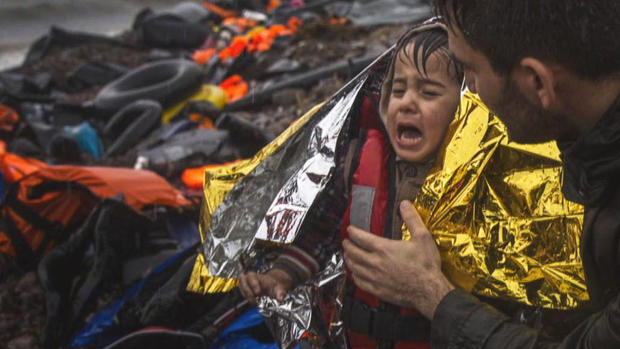Migrants clash with cops as EU leaders butt heads
OPATOVAC, Croatia -- Scuffles broke out between Croatian police and people fleeing conflict and poverty in search of better lives as European Union interior ministers gathered in Brussels on Tuesday to try to overcome deep differences about how to manage the refugee emergency.
The trouble in Croatia started early at a new transit camp in the eastern village of Opatovac, where migrants streamed to the gates in great numbers, overwhelming authorities. Adding to the chaos, people inside the camp mobbed the gates and demanded to leave -- since they had been promised they would stay only 24 hours before being allowed to continue their journeys.
Police pushed people back from both sides of the gate, but tensions remained high.
In Brussels, EU interior ministers aim to agree on a plan to share 120,000 refugees in countries worst hit by the influx among their other EU partners. The Czech Republic, Hungary and Slovakia are vehemently opposed to the quota plan, while Latvia and Poland are also skeptical. On Wednesday, EU leaders will hold an emergency summit.
As CBS News correspondent Mark Phillips reported Monday, even if the EU leaders can agree to a deal to shelter the 120,000 refugees in the worst-hit nations -- and that agreement remains far from certain -- it will do little to ease the strains caused by the rapid influx of almost half a million migrants and refugees to Europe this year already.
Those who've been dealing with the crisis on the ground, like Francesco Rocca of the Red Cross, tell CBS News they're holding out little hope.
"Every week there is another high level meeting. But there is no response from these meetings. Nothing happens," he told Phillips.
And the flow of refugees into Europe isn't even slowing.
The disarray in Opatovac illustrates the struggles faced by Croatia as it seeks to control an unprecedented influx of people fleeing conflict and poverty in the Middle East, Africa and Asia.
Croatia set up a migrant reception operation to try to bring order to the unrelenting chaos that has gripped the country since Sept. 15, when Hungary closed its border with Serbia. That decision diverted waves of people seeking refuge to Croatia - a nation of 4.2 million that is among the 28-member EU's poorest.
Croatia is demanding a unified response from the EU on how to tackle the surge.
Meanwhile, people are on the move all over southeastern Europe.
Austrian police say about 1,000 new arrivals are expected soon at the main border crossing point with Hungary, after nearly 10,000 people trekked into the country. Police spokesman Helmut Marban said Tuesday that most of Monday's arrivals at the Nickelsdorf crossing east of Vienna had already been brought to emergency shelters elsewhere in the country.
Marban said Hungary is bringing the 1,000 people expected Tuesday to its side of the border by train. From there, the migrants usually walk into Austria.
